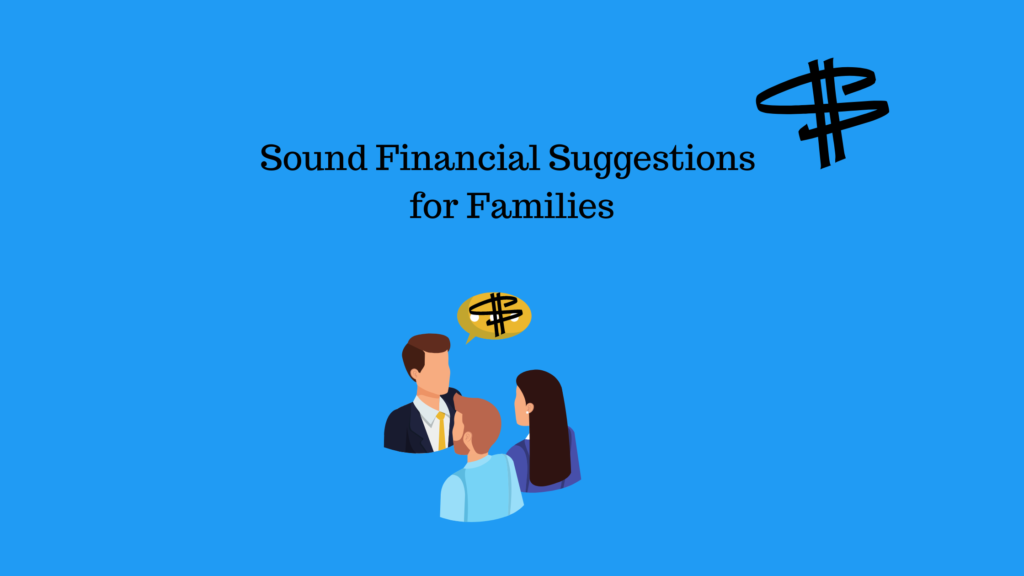Sound Financial Suggestions for Families
As a young family, it can be easy to feel overwhelmed by the demands of parenting, work, and household management. Add in the complexity of managing your finances, and it’s no wonder that so many young families struggle to get a handle on their money.

In tough economic times, your goal may be simply to keep the mortgage paid and food on the table. But the good news is that there are steps you can take to get your finances under control and set your family up for long-term financial success. Here are some tips to get you started:
Set financial goals: Before you can take control of your finances, it’s important to have a clear idea of what you want to achieve. Do you want to pay off debt, save for a down payment on a house, or start a college fund for your children? Whatever your goals may be, it’s important to set specific, measurable, achievable, relevant, and time-bound (SMART) goals to help you stay on track.(Watch for our next blog for examples of implementing these goals.)
Create a budget: A budget is a plan that helps you manage your income and expenses so you can achieve your financial goals. To create a budget, start by listing your income, including your salaries, bonuses, and any other sources of income. Next, list your expenses, including your fixed expenses (like rent and car payments) and your variable expenses (like groceries and entertainment). Subtract your expenses from your income to see how much money you have left over. If you have more money coming in than going out, you’re in good shape. If you’re spending more than you’re making, it’s time to make some adjustments to your budget.
Cut expenses: If you’re having trouble making ends meet, one of the easiest ways to get your finances under control is to cut unnecessary expenses. Look at your budget and see if there are any areas where you can trim the fat. Maybe you’re paying for a gym membership that you don’t use, or maybe you’re buying too many lattes at the coffee shop. Every little bit adds up, so look for ways to cut back wherever you can.
Increase your income: If you’re having trouble making ends meet on your current income, consider ways to bring in more money. This could mean taking on extra hours at work, starting a side hustle, or even selling items you no longer need on platforms like eBay.
Save for emergencies: Emergencies happen, and it’s important to be prepared for them. Set aside a small amount of money each month in a savings account for emergencies. This way, when unexpected expenses arise (like a car repair or a trip to the emergency room), you won’t have to rely on credit cards or loans to cover the cost. These do not have to be large amounts, particularly in this economy. Anything you can set aside will feel like an accomplishment. Even simply setting aside a small amount each month can be beneficial.
Pay off debt: If you’re carrying a lot of debt, it can be hard to get your finances under control. Start by focusing on paying off high-interest debt, like credit card balances, as quickly as possible. You can do this by making more than the minimum payment each month or by consolidating your debts into a single loan with a lower interest rate.
Use cash or debit cards: Credit cards can be convenient, but they can also be a trap. If you’re having trouble controlling your spending, try using cash or debit cards instead. This will help you stay within your budget and avoid racking up credit card debt.
Seek professional help: If you are struggling to get your finances under control, don’t be afraid to seek help from a financial professional. A financial advisor or counselor can help you create a budget, pay off debt, and set financial goals for the future.
Managing your finances as a young family can be challenging, but it’s also an important part of having a stress-free life.
Leave a Reply